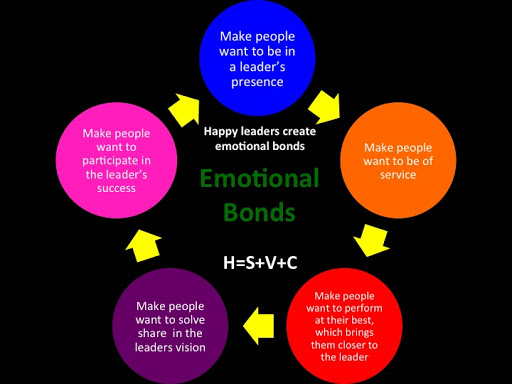|
|
|
Category Archives: leadership
Tomorrow’s Leader
Today I want to give you a glimpse of his philosophy with an excerpt from an article he wrote; it is called “Tomorrow’s Leader”:
What are some of the more important factors driving this change? First, the way in which business is transacted is changing. Technology-the Internet, new methods of communication, faster and more customized manufacturing, and so on-is a principal cause, but not the only one. Second, the breadth of the playing field in which business takes place is increasing enormously. A tiny bookstore in a suburb of Manila can take a sale away from Borders. Third, consumer expectations are changing, and consumers are becoming much more demanding. At the same time, employees and their expectations are changing. They expect more from work and want to contribute in different ways. Another important factor is that interdependence is becoming greater and much more complex. A U.S. company may have a research laboratory in Bangalore developing prototype products for Australia. The interdependence goes beyond business relationships to encompass governments, nongovernmental organizations, and other parts of the citizen sector. Last, the pace of change has accelerated so rapidly that size is no longer a protective buffer. Multibillion dollar companies often see their competitive positions erode within months.
Leadership then is a hot area for management thinkers and writers, for good reason: in this new world, our organizations-commercial, not-for-profit, and government-need leaders with different skills and a richer set of them to lead us into the future.
……
Let me explain.
I have taught a course called Creativity and Personal Mastery for many years at schools such as Columbia Business School and the London Business School, and to executives in other forums. It is a deeply introspective course, and those who take it spend enormous amounts of time contemplating the workplace and how they would like it to be. They think about leadership styles they would like to develop and what they would like to see in their hierarchical superiors.
Hundreds of students and executives have shared their opinions with me. Are there variations? Sure there are. But the composite picture that emerges is startlingly clear and quite unambiguous. The successful leader of the future is one who can create systems that bring into being organizations that command a deep allegiance from employees, and from others who interact with the organizations, such as customers and suppliers.
In discussing this new type of leader, I speak mainly from the perspective of for-profit business organizations, but intuitive changes can readily be made to adjust to the needs of other types of organizations. Also, much of what I reveal concerns organizational culture and values.
So what is the task that lies ahead for the successful leader of the future?
Set an Inspiring Mission
While this may not seem relevant to leadership, mission is actually crucial. The leader sets the organization’s mission, and if this mission does not resonate deeply, then those being led will merely go through the motions. Many of our present organizations have exemplary missions that exist primarily in framed statements in the boardroom and in company brochures. This does not work. The mission should resonate and it should be crystal clear to all that it is indeed the guiding principle of the organization.
Nobody gets passionate about maximizing shareholder value, or gaining market share, or reaching market dominance, or achieving set revenues or earnings increases. In fact, a leader who puts any of these, or similar, metrics forward immediately and silently loses much support.
Here is what I have learned: the purpose of a business is to ensure that every person who comes into contact with it reaches his or her highest potential. This includes employees, customers, suppliers, lenders, shareholders, and the community at large.
……
A leader trying to formulate his or her company’s mission in line with this purpose will find an unbelievable degree of engagement at all levels.
Pursue Profits After Mission
Profits are the lifeblood of a successful business. None of the people who have shared their thoughts with me have anything against healthy profits. What they are against is a primary focus on profit.
Viktor Frankl postulated that success and happiness cannot be pursued-they must ensue as unintended side effects of one’s personal dedication to a course greater than oneself.
In like fashion, profits are the inevitable by-product of a business successfully run in accordance with a mission and purpose as described earlier.
……
The successful leader of the future, then, sets an inspiring mission, pursues profits secondarily to that mission, and makes sure that compensation is fair at all levels. This leader eliminates demotivating obstacles and is of service to his or her followers, not self-aggrandizing, and demonstrates a commitment to community, learning, and justice.
And this, my students tell me, is the sort of leader for whom they will gladly lay their heads on the rail.
(From The Organization of the Future 2. Copyright © 2009 by Leader to Leader Institute- This material is reproduced with permission of John Wiley & Sons, Inc.)
So what is your take? Send me an email and let me know your opinion!
And if you are in the process of transforming your life feel free to schedule an online conversation with me via meetme.so/dieterlangenecker anytime!
The Conscious Lifestyle: A Leader Must Be Aware | LinkedIn
The Conscious Lifestyle: A Leader Bonds Emotionally (Part 2) | LinkedIn
The Conscious Lifestyle: A Leader Bonds Emotionally | LinkedIn
The #1 Reason Leadership Development Fails
Improved Executive Time Management: Living As If Today Is Your Last | Leadership Ethics Online
Improved Executive Time Management: Living As If Today Is Your Last | Leadership Ethics Online




